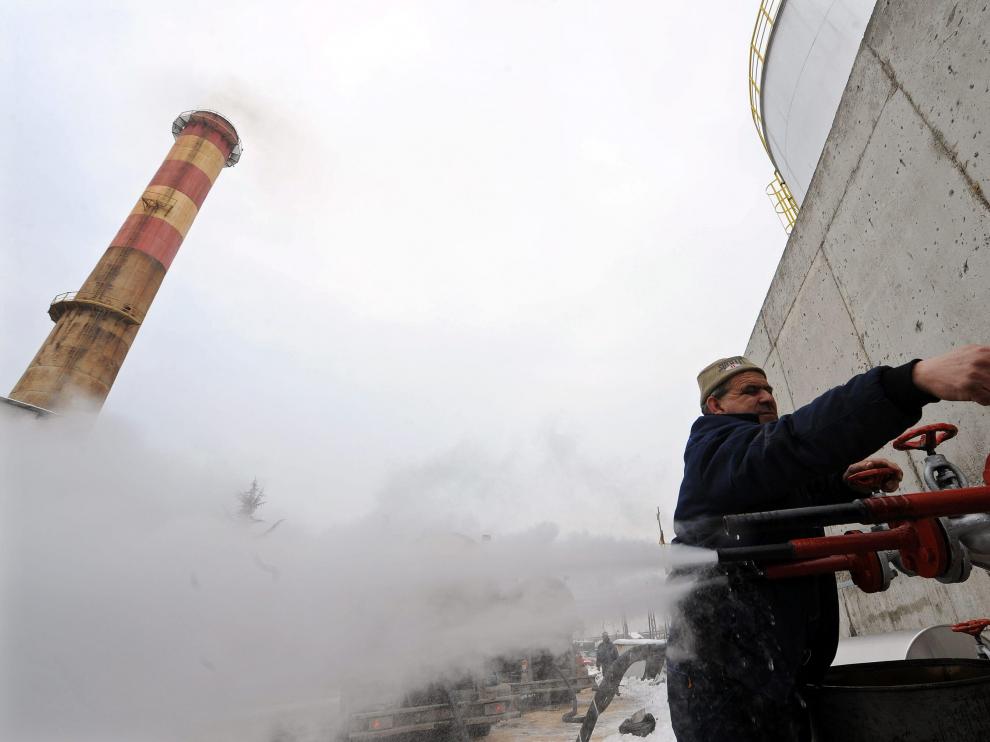The European Union , which since the beginning of the war in Ukraine spends 1,000 million euros a day buying energy from Moscow , will prohibit the import of Russian coal from August, which represents only a small part of an energy business that dominates oil and gas , more lucrative for the Kremlin and difficult for the EU to sanction.
Russia supplies 46% of the coal consumed by the EU and its withdrawal will be done gradually over the next 120 days, a period after which all imports will be banned. According to Brussels calculations, it will have an annual impact of 8,000 million.
However, Eurostat data suggest that in the last ten years the EU has bought 4,400 million in coal annually from Russia . Although the figure grew in 2021 to 5,420 million, it is still far from gas sales (17,300 million) and oil (74,000 million).
The president of the European Commission, Ursula von der Leyen , advanced this week that Brussels is preparing sanctions against crude oil and her counterpart in the European Council, Charles Michel, believes that “sooner or later” we will have to talk about sanctions for gas and Petroleum. The European Parliament also calls for a total and immediate embargo of both .
But the approval of sanctions requires the unanimity of the Twenty -seven and among the Member States there are very contrasting positions: from the harshness demanded by Poland or the Baltics and the willingness of France to punish oil, to the reluctance of Austria and Germany to go further away and the resounding refusal of Hungary.
Petroleum
26.9% of the oil consumed by the EU is Russian and the bloc is exploring sanctioning the crude oil that financially nourishes President Vladimir Putin , with options such as a gradual ban on imports or imposing tariffs.
“It is totally possible. If it is not done gradually, it can cause some supply problems ” and there would be “impacts on certain industries, but it would not lead us to pay more for oil in a structural way,” the professor of Geopolitics and Energy told Efe. of the Free University of Brussels, Adel el Gammal.
But maybe in the short term. In its latest oil report, from March, the International Energy Agency (IEA) notes that only “the prospect of large-scale interruptions in Russian oil production threatens to create a ‘shock’ in world supply. of oil .”
The IEA, which has outlined a plan to reduce consumption that includes car-free Sundays in cities and encourage teleworking or cycling, warns that only Saudi Arabia and the United Arab Emirates have “substantial additional capacity that could help immediately to offset Russia’s deficit”.
The executive director of that OECD agency, Fatih Birol, explained at the beginning of the war some of the difficulties involved in replacing Russian oil : despite the fact that there is a global market, crude oil takes four days to travel from Russia to the refineries European and one month if you do it from America.
In addition, it would be a severe blow for the European partners that buy the most oil from Russia, such as the Netherlands (about 17,000 million last year) and Germany (more than 12,000 million).
On the other hand, sanctioning it could further push prices in a context of record inflation -7.5% in March in the eurozone- and make a barrel of Brent more expensive, a reference in Europe, which a year ago was trading at just over 60 dollars , reached 130 at the beginning of March and is now moving around 100.
One way to contain prices is to put more crude oil on sale and for this reason, the IEA announced this Wednesday that its members -including oil producing countries such as Australia, Canada, Norway, the United Kingdom or Mexico- will release 120 million barrels of crude oil from their strategic reserves.
Half will be from the United States , which had already indicated that it would place one million barrels a day on the markets for the next six months. “A million barrels is only 1.2% of world consumption, but it is a psychological sign” that indicates “that the US is willing to act to calm the markets,” says El Gammal.
Gas supply
A correction on gas, which is much more difficult to replace and transport than oil, seems further away, especially for highly dependent countries such as Austria , which hides the origin of its energy for reasons of confidentiality, but Eurostat calculates that 80% of its energy imports come from Russia .
Mario Draghi’s Italy is in favor of a more ambitious embargo on Russian hydrocarbons. The former ECB president recently emphasized that you have to choose between peace or being able to turn on the air conditioning , but a ban on Moscow’s gas would do him considerable harm: his purchases in 2021 exceeded 5.4 billion.
The recipe is to buy more liquefied natural gas (LNG) from the US, Qatar, Azerbaijan or Nigeria, although the available volumes are limited, and to recharge the warehouses for next winter.
Also for reducing consumption and, above all, massively deploying renewable generation facilities to reach the goal of cutting energy ties with Moscow in the next decade and, incidentally, speed up the transformation of the energy system to emit less CO2.

